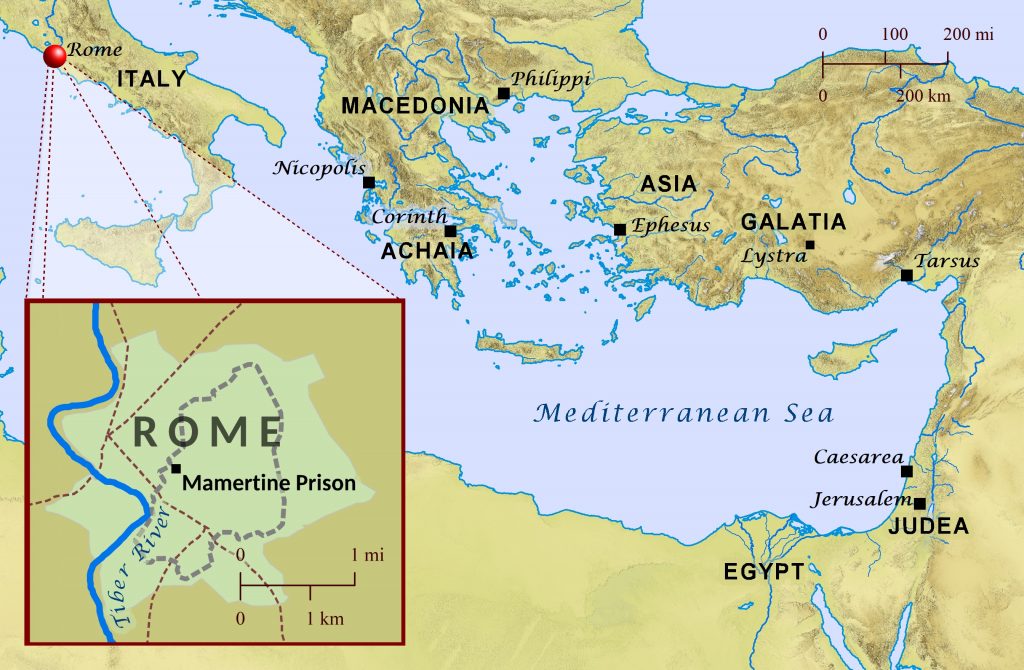Readers’ Version
Literal Version
23:23 Paul is escorted away in the night
23 Then the commander called in two of his centurions and ordered them to prepare two-hundred soldiers to travel as far as Caesarea, supported by seventy mounted soldiers and two-hundred more with spears. They were to be ready to leave by 9pm, 24 along with a horse for Paul to ride, and were to get him safely to Governor Felix. 25 Then the commander wrote a letter ready to take:
26 “Greetings to the most excellent Governor Felix from Claudius Lysias. 27 I’m writing to you about this man who had been captured by the Jews here and they were about to kill him when I moved in with my soldiers because he is a Roman citizen. 28 I wanted to know what they were accusing him of, so I took him down to their council meeting, 29 but I discovered that it was just some detail about their Jewish law and nothing that should result in death or imprisonment. 30 Then when I learnt that they have a plot to try to ambush and kill him, I sent him immediately to you, and I’ll order his accusers to bring their case before you.”
31 So the soldiers carried out their instructions and took Paul as far as Antipatris during the night. 32 The next morning the foot soldiers returned to the barracks, leaving the mounted soldiers to take him on 33 to Caesarea, where they presented Paul to the governor along with the letter. 34 After reading the letter the governor asked Paul what province that he’s from and found out that he was from Cilicia. 35 Then he ordered Paul to be kept under guard in the prison in Herod’s palace until he would hear from him in the future once his accusers got there.
Prepare two_hundred soldiers, so_that may_be_gone as_far_as Kaisareia, and seventy horsemen, and two_hundred spearmen for the_third hour of_the night.
24 And mounts to_present, in_order_that having_mounted the Paulos, they_may_bring_safely_through him to Faʸlix the governor, 25 having_written a_letter, having the this pattern:
26 Klaudios Lusias, to_be_greeting to_the most_excellent governor Faʸlix.
27 The this man having_been_captured by the Youdaiōns, and going to_be_being_killed by them, having_approached with their army, I_rescued him having_learned that he_is a_Ɽōmaios.
28 And wishing to_know the charge because_of which they_were_indicting against_him, I_brought_down him to the council of_them.
29 Whom I_found being_indicted concerning questions of_the law of_them, but nothing having indictment worthy of_death or of_bonds.
30 And having_been_divulged to_me of_a_plot going_to_be against the man, I_sent him immediately to you, having_ also _commanded to_the accusers them to_be_speaking before you.
31 Therefore indeed the soldiers according_to the thing having_been_directed to_them, having_taken_up the Paulos, brought him by night to the Antipatris.
32 But on_the day of_next, having_allowed the horsemen to_be_going_away with him, they_returned to the barracks, 33 who having_come_in into the Kaisareia, and having_delivered_up the letter to_the governor, they_ also _presented the Paulos to_him.
34 And having_read it, and having_asked of what province he_is, and having_learned that he_is from Kilikia, 35 he_was_saying I_will_be_thoroughly_hearing from_you:
whenever also the accusers of_you may_arrive, having_commanded for_him to_be_being_guarded in the residence_of_the_governor the of_Haʸrōdaʸs.

